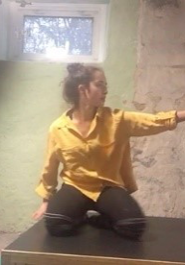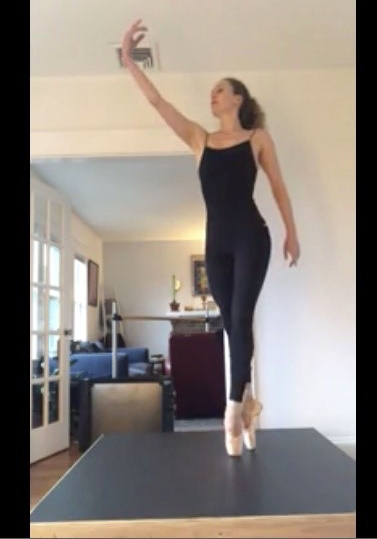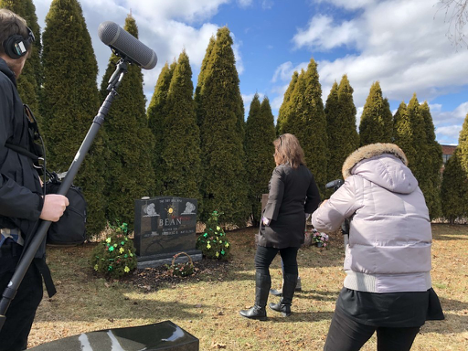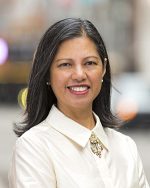REFLECTION FROM MAPC ARTIST IN RESIDENCE HORTENSE GERARDO
Art in the Time of COVID-19
The COVID-19 quarantine has transformed my remaining time as MAPC’s Artist in Residence (AiR) and my work as a professional playwright and professor: social distancing measures meant my spring and summer performances couldn’t go on as scheduled. My initial response was to simply postpone and reschedule for the fall. As the initial shutdown dates extended, however, I began rethinking the ways in which the postponed performances could be turned into filmed projects.
At first, the task of transforming the projects was daunting, and somewhat of a letdown compared to the anticipation of live performance. However, I have long been intrigued by the possibility that live performative events may now be preserved on film, not only as an archive, but also as a way to continuously reconstruct and adapt projects for new media. Aside from thinking about the crisis’ undeniable effect on the way we produce and consume art work I’m spending this time incubating and nurturing nascent forms of artistic endeavor in digital storytelling and new media.
I’ve experimented with augmented reality (AR) and virtual reality (VR) in my own performance projects, but now I have reason to expand these earlier experiments even further, particularly with respect to applying the new media to older, more traditional forms of storytelling. I wonder if I’ll ever be able to write plays for the stage without having a built-in contingency plan for sudden, unexpected quarantine measures that may be put in place.

It feels as though playwrights and dancers are entering into a new phase of our media, having to adjust and adapt to new online video formats. The challenges and opportunities we are facing today are reminiscent of the kinds of challenges that theatre actors faced with the introduction of silent film, and then again when the technology enabled the creation of “talking pictures.” Each of these innovations selected for those who were resilient enough to adapt to the demands of the situation. Just as a new language unique to cinema – editing -- evolved as a result of the emergence of film, new languages in the form of performing arts adapted for online consumption are emerging now. Livestreamed concerts are featured on Instagram and new interpretations of Shakespearean and ancient Greek plays are appearing on TikTok. Multi-tasking audiences have an appetite for ten-minute and one-minute plays that provide a culture fix in short, stay-at-home friendly bites. Artists are sharing more of their works-in-progress and receiving insightful critiques from colleagues in a way that previous time constraints did not allow.




Small Steps on Climate Change dancers practice in their homes
I am excited to be researching new ways in which I might co-opt social media platforms, and incorporate AR and VR into the projects I am creating with MAPC. For example, I am transforming production of The Medfield Anthology, a socially-engaged play that I wrote as part of my AiR Residency, from a live staging on the site of the former Medfield State Hospital to a virtual performance over Zoom (Dates are June 4, 5, and 11 at 7 p.m. – and you can reserve a space here).
Although my residency will end soon after these performances, the recordings that we will create through the process will enable me to continue to work on this project, writing new scenes, and one day perhaps creating a fully-immersive version of The Medfield Anthology for viewers to experience as they wander the site and pick up geo-tagged AR content on their smartphones.
Likewise, I am thinking of ways that asynchronous recordings might still somehow be interconnected in a durational performative experience, such as what I am considering with Small Steps on Climate Change, a dance project I curated that was to be performed in April. That project will be presented through the format of a documentary film. For my post-residency life, I am now designing curricula that aims to teach students how to incorporate the tools of anthropology, the skills of performance, and an appreciation for new technologies in a way that will create truly socially-engaged art. My hope is to invite specialists in a variety of disciplines to interact in an online speaker series, workshops, seminars, and “collaboratories” to consider how new technologies might build compassion and empathy, the very characteristics that will help us all transcend the current crisis. I continue to be thankful for the ongoing guidance and support from MAPC.

A short documentary film (co-directed for MAPC) entitled The Opioid Epidemic: A Mother’s Reckoning was to be released in early April but withheld for several weeks until May while MAPC coordinated regional disaster response efforts in the wake of the coronavirus pandemic.

